‘The Big Tech Show’ launched in city; speakers invite MNCs to set up base Beyond Bengaluru
Mysore/Mysuru: With the upcoming Bengaluru Tech Summit 2021, Government of Karnataka and Karnataka Digital Economy Mission under Beyond Bengaluru initiative launched ‘The Big Tech Show’ at Radisson Blu Plaza Hotel in city this morning.
The programme is aimed at enhancing growth in the IT/ITeS, Business Processing Outsourcing (BPO), Electronic System Design Manufacturing (ESDM), and telecom sector industries located in emerging technology clusters in Tier II & III cities across the State.
‘Beyond Bengaluru’ is an initiative of KDEM and the Department of Electronics, IT, BT and Science and Technology. Finance Minister Nirmala Sitharaman was scheduled to inaugurate today’s programme and she could not attend the event due to prior engagement.
The Beyond Bengaluru Event was inaugurated by Dr. C. N. Ashwathnarayan, Minister for Electronics, IT, BT, and S&T, and Minister for Higher Education, Skill Development, and scion of erstwhile Mysore royal family Yaduveer Krishnadatta Chamaraja Wadiyar. Rajeev Chandrasekhar, Minister of State for Skill Development and Entrepreneurship and Electronics and Information Technology of India participated virtually.
Accelerated digitisation
In his address, Rajeev Chandrasekhar said that the rate of digitisation across the globe is increasing at a fast pace and India alone has around 800 million users connected to the internet. This number is bound to cross the 1 billion mark soon as the Narendra Modi Government aims to achieve universal internet coverage. This shall increase the demand for digital products and services and hence boost the digital economy, he added.
On electronics manufacturing, he mentioned that the Government is working on a policy roadmap to develop the overall semiconductors and electronics system design and manufacturing ecosystem that shall position India as a major player in this sector. “We expect to grow this space through policy action,” he added.
Ever since PM Modi launched Digital India in 2015, India has been moving up the Global Innovation Index and is currently at 46th rank, a 20-point improvement from 66th rank in 2016, he noted.
On the imminent need of skilled persons, he mentioned, “We have a mandate of making India as the skill capital of the world and a new approach towards skilling is being worked out with greater impetus on traditional and heritage skills, tighter industry linkage and employability so that there is a continuous runway of skilling and upskilling,” he said.
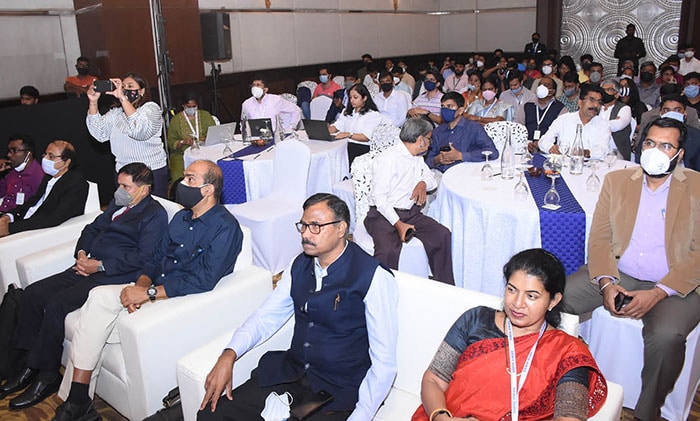
Looking at Mysuru
In his address, Dr. Ashwathnarayan maintained that the Government wants industry and academia to look beyond Bengaluru for creating maximum impact and cities beyond Bengaluru potential and it is important to effectively leverage the talent and skill across the State.
“Mysuru has the potential to become a premier start-up hub in the country. Additionally, Mysuru is well placed as far as quality and cost of living are concerned and is the next obvious destination after Bengaluru as it provides access to the best academia, infrastructure, connectivity and the expat community,” he noted.
Digital transformation is now happening at an accelerated pace, making initiatives such as ‘Make in India,’ ‘Digital India’ and ‘Start-up India’ more important than ever before. With work from home gaining a lot of significance over the past year, the talent pool that was once concentrated in Bengaluru has expanded and it has enabled industries to find skilled resources in other emerging cities of Karnataka as well. The time is now apt for all the MNCs to expand operations and set up bases in all the emerging and growing cities of Karnataka, he added. Kiran Majumdar Shaw, Executive Chairperson and founder of Biocon Limited and Biocon Biologics Limited, Debjani Ghosh, President NASSCOM, E.V. Ramana Reddy, Additional Chief Secretary – Department of Commerce and Industries and Department of Electronics Information Technology Biotechnology and Science & Technology, Prashanth Prakash, Chairman, Start-up Vision Group, B V Naidu, Chairman KDEM, Sanjeev Gupta, MD and CEO, Lahari, Pavan Ranga, Chairman CII Mysuru & Director N.R. Group, Sandip Patel, Managing Director, IBM India/South Asia, Meena Nagaraj, MD KITS and Director, Department of Electronics, IT, BT and others were present.



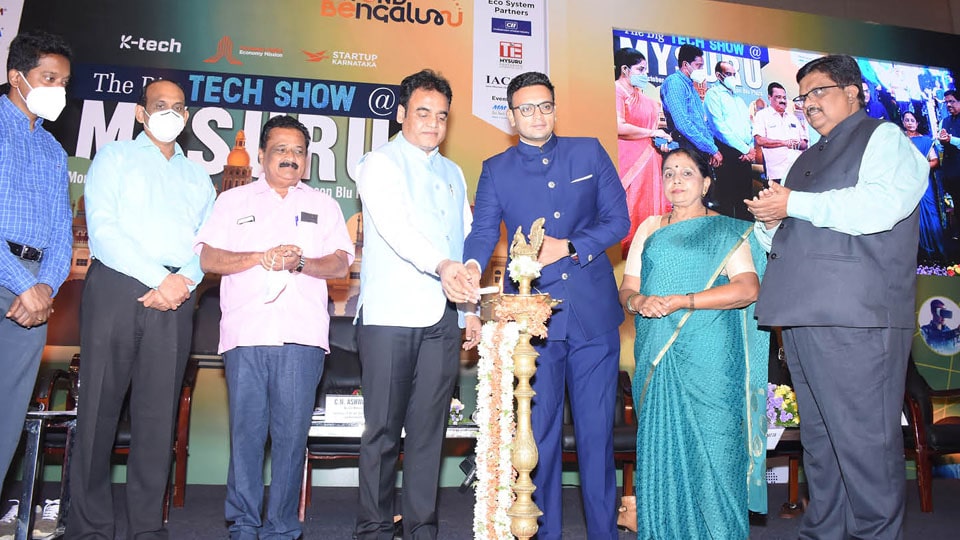
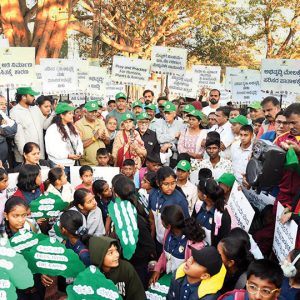
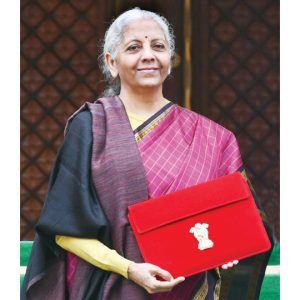
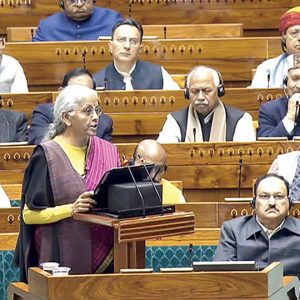
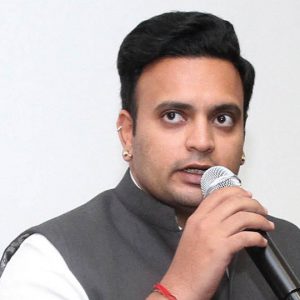
This is the biggest joke of the century. With a total lack of infrastructure including motorable roads, safe drinking water and a sustainable infrastructure and the most corrupt and inefficient departments like MCC and MUDA no sane company or person would like to invest in My-Sore
Please spare Mysuru let it remain as pensioners paradise.
Don’t forget that industries in this city was a big failure, for various reasons.
Allow Mysore to remain as Royal city with it’s grandeur.
Karnataka Govt has always been the unmatched best at “seduction & foreplay”, but when it comes to the real ‘ballgame’, they leak out quicker than the Bogadi lake the other day.
Dont spoil the calmness of a city which has its own charm. U have already started in some way n dont let Mysore become a migratory hub for north n spoil the city.
Kindly don’t make Mysore as an industrial city. Keep Mysore as a tourist city in the state.
Spend more money to attract tourists and in the renovation works of the old monuments without affecting their originality. Keep the city calm and beautiful.
The government has already failed to control the real estate atrocities in and around the city. This is going to become another Bengaluru if they don’t take necessary action. No doubt with the new infrastructure corridor there will be more real estate investors and land buyers who don’t care about the legacy of the city.
Leave it as Mysuru, a historic place.
Please don’t touch Mysore
😓 it will ruin the beauty of mysore
Born, brought up, educated , worked and lived in Mysuru during 1950s, 1960s, and up until 1970s, I can say that Mysuru progressively lost its shine as a beautiful city and in late 1960s, massive influx of people, who are mostly retirees and who never lived and worked in the City and hence were outsiders created a huge demand for housing. This meant cutting forests around the perimeter of the City, and expanding the limits as a result, thus creating new extensions miles away from the centre of the City. Most of these residents were not Kannadigas.
During my few visits to the City, living abroad, I found the City getting highly polluted, the quietness which is a character of the City disappearing totally, the mad traffic of fossil-fuelled 4 wheelers, 3 wheelers and 2 wheelers , clogging the roads, and producing choking pollution,; by late 1970s, I could see a second Bengaluru emerging fast. I could not recognise my native City during my visits in early 1980s.
The Mysuru, I knew and loved was gone, and remained only in my memories. This mad expansion of the City also meant, illnesses that we saw very rarely increasingly appearing as people took to 4 and 2 wheelers to drive to work and to shop, when in 1950s and 1960s, people walked and cycled , and were fit. The above gave rise to dozens of private hospitals and clinics, and massive fleecing of patients.
The creation of these industrial hubs will make it look really like the grown up sister of Bengaluru.!
Wait until, your elected politicians destroy the serenity of the Chamundi Hill completely, by further expanding the road leading to temple, by inviting more tourists, converting the Hill as a prime tourist attraction; more non-Kannada -speaking residents, thus expanding the city limits much much further.
Mysuru of today is not the Mysuru of 5 decades ago. It has lost its charm. It became a real big sister of Bengaluru with all the maladies that go with it. The story of independent India!
Living in Mysuru, where I was born and brought up too, besides my pleasant experience of living in the wonderful Royal City, which was serene, My experience of visiting Bengaluru during 1950s, in my school holidays, taking the Chamundi express, was I enjoyed Bengaluru as much as I enjoyed Mysuru. It was really a garden city with lush Lalbagh and Cubbon Park, and a friendly city to walk.
Bengaluru was growing then, but with a lesser pace. The integration of the neighbouring areas in Maharashtra and Andhra Pradesh, particularly which created the Uttara Karnakata regions, brought in MLAs , who became important ministers in the Congress government. Though Nijalingappa was the CM then; these new ministers from Uttara Karnataka were of his caste, and they were singularly not interested in the welfare of Bengaluru. When the opportunity to locate the centrally funded industries arose in early 1960s the cabinet approved Bengaluru as the most appropriate place. I remember many wise voices at that time asking the CM, to located industries like the ITI, BEL and HMT in other parts of Karnataka, which needed job opportunities,, and development. But the CM did not listen. As a result all these industries were located in the outskirts of Bengaluru with the inevitable expansion, of Bengaluru, sucking in massive numbers of people from other states , and from villages too. The slipper slope of Bengaluru was ready.
The almost free donation of green fields in Mysuru to companies like the InfoSys created the rigger for massive expansion of Mysuru too. Again, the Congress government, which gave away land almost free to Infosys and other IT companies in Bengaluru neighbourhood, instead of insisting these company founders to located their companies in other districts away from Bengaluru and Mysuru. These actions of early 1960s and in 1980s, reduced Bengaluru to what it is now-a cesspit of polluted, overpopulated, very expensive and unlivable place.
Today, Mysuru is surely heading the way of Bengaluru.
Well, in 1950s, the population of India was a very health 360 million of people. Today, just 6 decades later, it has quadrupled, adding one Australia every year.